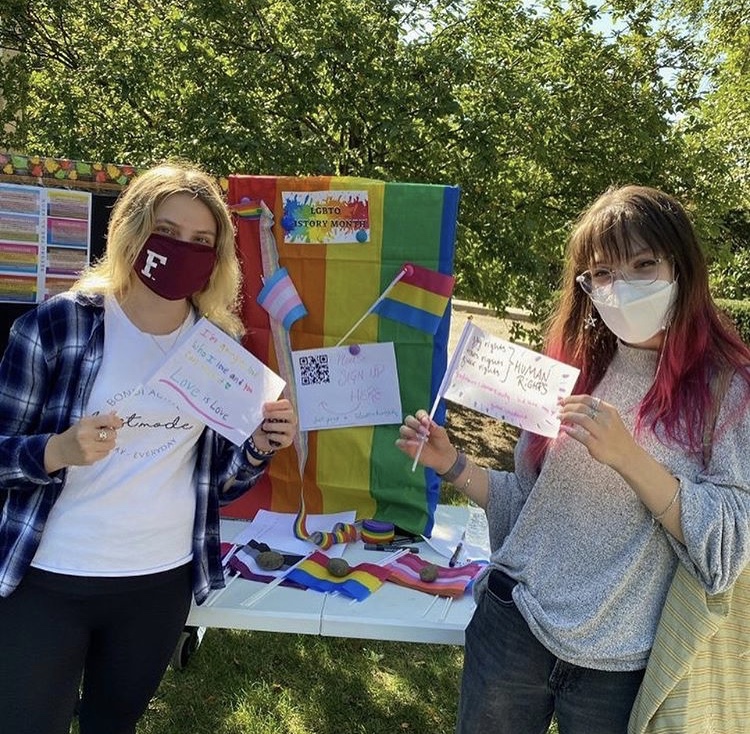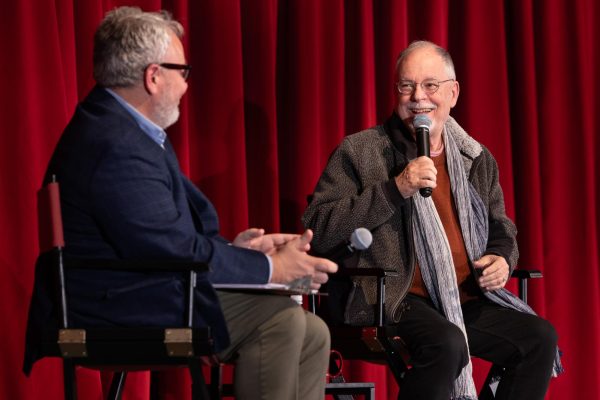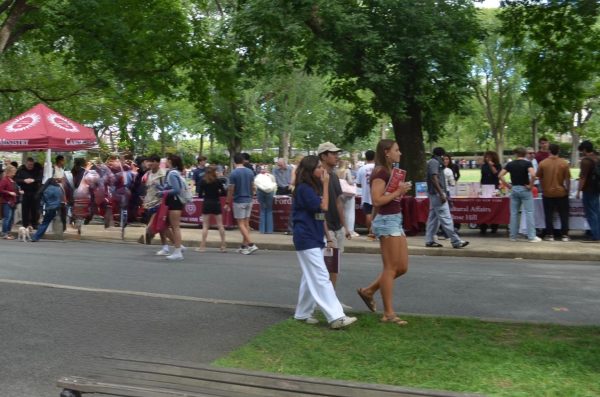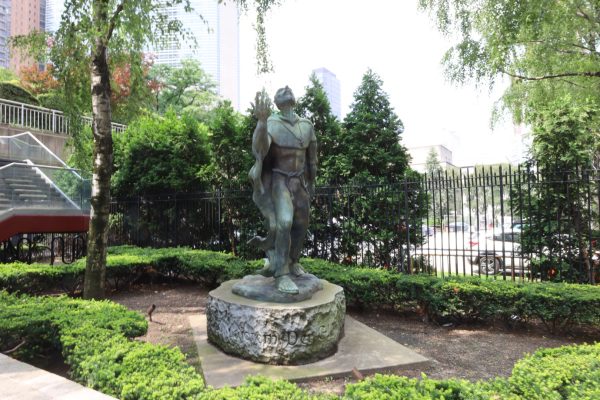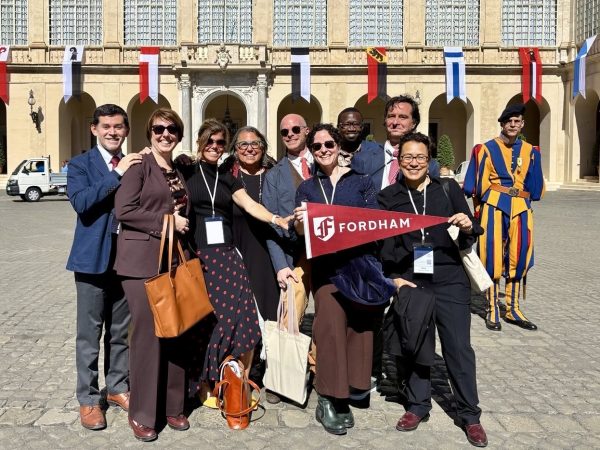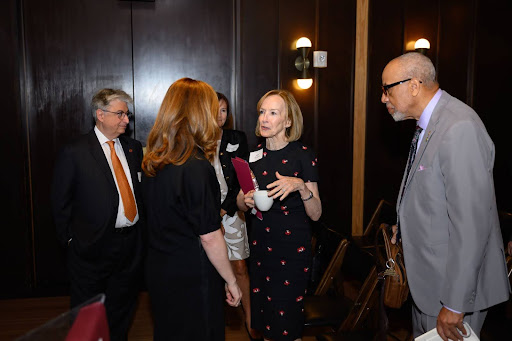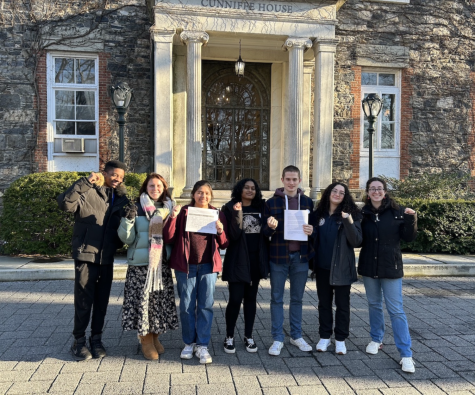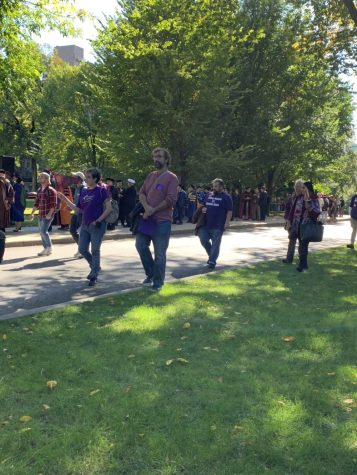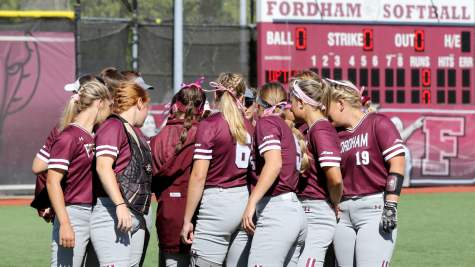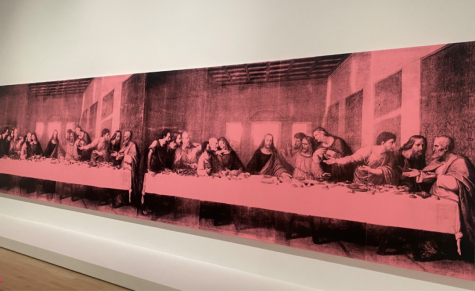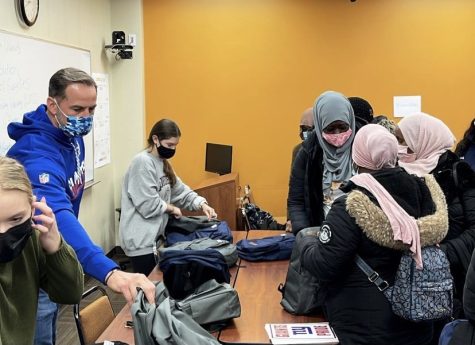Fordham’s LGBTQ and Ally Network of Support Reaches 10 Years
This year marks the 10th anniversary of Fordham’s LGBTQ and Ally Network of Support.
The network, launched in the fall of 2010, is run under the Office of Multicultural Affairs (OMA). It is open to all members of the Fordham community who “would like to demonstrate their active commitment to creating a campus environment,” according to their mission statement.
“[The Network of Support] is welcoming to LGBTQ students and their allies, in keeping with the Jesuit tenet of ‘cura personalis’ and the explicit Catholic teaching that all persons should be treated with dignity and respect,” its mission statement says.
The program is overseen by Juan Carlos Matos, assistant vice president for Student Affairs for Diversity and Inclusion. The network was originally headed by former Director of OMA Sofia Bautista Pertuz in 2010.
“While I wasn’t at Fordham when the program started, it was created as a way to express solidarity and support to LGBTQ students at Fordham,” Matos said.
The Network aims to provide members of the Fordham community with history and resources related back to LGBTQ+ identity and for members of the community to identify other folks to be connected to, inclusive of students, faculty and staff, Matos said.
“One small way we’ve heard this happen has been through faculty or staff having the Rainbow Certificate at their desk and students already feeling a bit more comfortable being able to speak with that individual in a more authentic way,” Motas said.
The LGBTQ and Ally Network of Support was developed after OMA conducted research 10 years ago on institutions that had similar programs. It was piloted in the spring of 2009, and once finalized, was officially launched as regular programming with OMA.
“A story is shared at the beginning of the training program of a student who transferred out of Fordham due to not being able to identify any students, faculty, or staff who identified as LGBTQ or could at least provide intentional care for them,” Matos said.
Training sessions for the LGBTQ and Ally Network of Support are offered each semester at both the Lincoln Center and Rose Hill campuses. The program is being run both online and in person to accommodate the circumstances of this semester, Matos said. The in-person training sessions will comply with social distancing guidelines.
The program has had over 900 participants over the years of faculty, students and staff.This year, one of the dialogues in training will be focused on BIPOC LGBTQ people.
“We are currently looking at ways to engage more faculty and undergraduate students in the program,” Matos said. “We are also looking for ways to increase BIPOC and male participation with the program.”
The aim of the program is to build a community of trained students, faculty and staff across Fordham who support LGBTQ students and understand the unique challenges facing those students, Matos said.
“Upon completion of the training, participants should be able to actively work toward promoting an environment in which each member of the university community is welcomed and valued,” its mission statement says.
The training has a mix of interactive activities, videos, small group discussions and presenters, Matos said. Participants who complete five hours of training through workshops and modules are then considered members of the network of support. They are encouraged to return to the training sessions for a “refresher course” after five or more years of completing the program.
Members of the network of support should be able to “identify and challenge behavior and language that is offensive and exclusive to lesbian, gay, bisexual, transgender, and questioning students,” according to the program’s learning objectives.
“While there is always work that can be done to increase support for the LGBTQ community, especially at a Jesuit school, this program, and many other LGBTQ focused initaitives on campus, serve as a beacon to folks that there is a level of acceptance at Fordham for the community,” Matos said.
According to the LGBTQ resources page on Fordham’s website, one of its main goals is to bring awareness to other LGBTQ resources on campus. These include student organizations like PRIDE Alliance at Rose Hill and Rainbow Alliance at Lincoln Center, the PRISM Retreat run through Campus Ministry and additional workshops, programs and events hosted by OMA throughout the year.
“I recently heard from a staff member that the program’s existence was a reason she chose to work at Fordham,” Matos said. “My personal hope is that all students within the LGBTQ umbrella can come to Fordham and exist as their true self in every space they participate in here on campus to truly feel welcomed and included.”
The training program is conducted over two days for two and a half hours each day. Participants then are considered to be skilled in promoting understanding, acceptance and appreciation within their environment. This year, training is being offered at Rose Hill on Oct. 14 and 21 and at Lincoln Center on Oct. 15 and 22.
“I hope that more members can join the network so that the Fordham community can expand the network of people who honestly care for and want to support LGBTQ students one thousand percent and want to ensure their success here,” Matos said.



































































































































































































